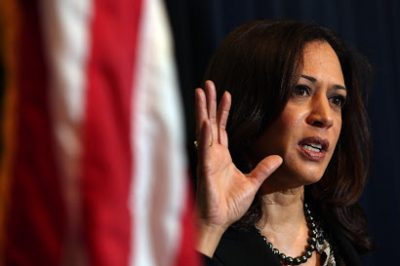Bye-den – Afghanistan to be Used as the Pretext for a Harris Administration?

All Global Research articles can be read in 51 languages by activating the “Translate Website” drop down menu on the top banner of our home page (Desktop version).
Visit and follow us on Instagram at @crg_globalresearch.
***
Over the past two weeks, the world has looked on in ominous horror at emotive scenes of Afghans desperately clinging to departing US warplanes in a bid to escape incoming Taliban rule, as the Washington-led occupation of the Middle Eastern nation draws to a close after 20 years; a situation exacerbated even further by Thursday’s suicide attack on Kabul airport, resulting in the deaths of 169 Afghan civilians and 13 members of US occupation forces, and subsequently claimed by the hitherto little-known ISIS-K (Khorasan) group, the Afghanistan branch of the wider Salafist network based mainly in Iraq and Syria.
In an unusual turn of events for the Middle East, the unfolding situation in Afghanistan has garnered widespread mainstream media attention, with the focus mainly being on women’s rights under the incoming regime, the influx of refugees the situation looks set to create, and in what is beginning to look the most tellingly of all, the competency of US President Joe Biden in handling the situation.
Having entered the White House in January of this year, it was widely expected by onlookers that Biden – Vice-President during the hawkish Obama administration – would take a far more interventionist stance on foreign policy than his predecessor Donald Trump, who despite having launched cruise missiles and air strikes at Syrian government forces in 2017 and 2018 respectively, both in response to alleged chemical attacks, and having assassinated Quds Force commander Qasem Soleimani in a January 2020 drone strike on Baghdad International Airport, resulting in a retaliatory Iranian missile strike on the US Ain Al-Asad airbase, would ultimately not launch any new wars or full-scale military interventions during his four year tenure as President.
True to form, Biden was in office little more than a month when his administration launched airstrikes against the Iran-aligned Iraqi PMU (Popular MobilIsation Units) in eastern Syria – the group operating in the Arab Republic in an anti-terror capacity under official invitation from Damascus – in a move that would play to the interests of Washington’s Neocons and the then-Israeli Premiership of Benjamin Netanyahu, both of whom had previously expressed a desire for US Forces to counter what they seen as ‘Iranian expansionism’ in Syria.
However, Biden’s advancing age has long drawn questions of his mental capacity in leading the United States, especially in terms of foreign policy; with his demeanour in a press conference called in response to the Kabul Airport attack coming in from widespread criticism, the current Commander In Chief seemingly shifting the blame for the current crisis onto the previous Trump administration, and also drawing questions from puzzled onlookers with his opening statement that he had been ‘instructed’ to call on NBC journalist Kelly O’Donnell first.
Therefore, it would seem that the current focus by the mainstream media on Afghanistan, and the ‘Biden is incompetent’ narrative direction it has begun to take, is being done with the intention of forcing the Delaware native to step down as US President and be replaced with his current second-in-command Kamala Harris – 22 years Biden’s junior and as equally hawkish on the Middle East.
A former US Senator from California, Harris was one of the notable Democrats to express bi-partisan support for the Donald Trump’s aforementioned 2017 cruise missile strike against a Syrian government airbase – carried out in spite of the Trump administration’s noticeably pulled back approach to the original Neocon goal of removing Bashar al-Assad from power, implemented during the Obama era via Timber Sycamore, a programme which seen the arming, funding and training of Salafist seeking to depose the Damascus’s secular leadership and replace it with a Western-friendly leadership which would allow White House-ally Qatar to build a pipeline through the Arab Republic – a programme halted during the Trump administration, but should Harris soon assume office amid the current Afghanistan debacle, looks very likely to make a comeback.
*
Note to readers: Please click the share buttons above or below. Follow us on Instagram, @crg_globalresearch. Forward this article to your email lists. Crosspost on your blog site, internet forums. etc.

